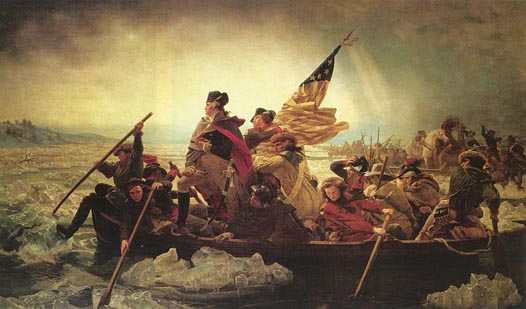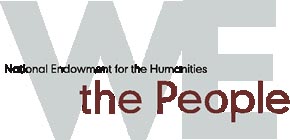COMO TRANSFERIR DA GATE.IO PARA TRUST WALLET
|
||||||||
|
||||||||

| |
|||||
| Dear Colleague: I am very pleased that you are contemplating coming to Boston to study George Washington. The resurgence of interest in the founding fathers, in biography, and in the connection between personal and public life makes this an ideal time to reassess Washington, to analyze his legacy, and to think about how in an egalitarian, multicultural society we can make an eighteenth-century soldier and aristocrat relevant. To understand the creation of the American nation, we must come to grips with George Washington. He led the Continental army to victory, helped shape the Constitution, and served as the nation’s first president. To his contemporaries, Washington seemed admirable but aloof, even mysterious. Modern historians and biographers have found many Washingtons. Edmund Morgan finds genius in the exercise of power. Gary Wills and Marcus Cunliffe find a Roman classical hero. Richard Brookhiser sees an exemplary life. Richard Norton Smith concentrates on the human Washington, lonely and aging. Reflecting the revisionist challenge to the founding fathers, Howard Zinn considers Washington a member of an elite class that failed to end slavery or inequality. Contemplating Washington's attitude towards slavery, Henry Wiencek calls him an "Imperfect God," suggesting that he both transcended and mirrored his time. Who was George Washington? We will spend three weeks at Boston University’s School of Education trying to answer this question. Boston Boston is an ideal city in which to base our study of Washington. Trips have been arranged to Washington’s military headquarters in Cambridge and to the John Adams National Historical Park, where we will explore the relationship between the two presidents. All of the resources of Boston University, including the use of the library and computer center, will be available to participants, who will be given the status and privileges of Visiting Scholars. During the summer, the City of Boston hosts concerts, plays, and special events, and its permanent cultural and historical attractions are plentiful, particularly as they relate to the history of early America. Week One Focusing on Washington’s personal life and connecting it to his public career will be the theme of the first week of the Institute. We will consider Washington’s education, his relationships with women, and his attitudes towards fame, religion and death. We will look at Washington’s own words in an attempt to understand the man. Traveling to Longfellow House, we will meet with Paul Blandford, who has devoted his life to studying Washington’s year in Cambridge. Blandford will also explain Washington’s place in nineteenth-century New England culture. Week Two In the second week, we will contrast the heroic Washington with the revisionist appraisal. How did John Marshall and Mason Locke Weems view Washington? Why does Richard Brookhiser still consider Washington’s life “exemplary”? We will analyze Michael Pack’s documentary Rediscovering George Washington and meet with William Martin, an outstanding writer who has written the novel Citizen Washington and the screenplay for a documentary on the life of Washington, George Washington: The Man Who Wouldn’t Be King. To offer an alternative to the heroic Washington, we will meet with the radical revisionist historian Howard Zinn. His visit will provide an opportunity to discuss what role the life of Washington should play in national and state history standards. Looking at current research, we will attempt to determine whether Washington holds up in a reality-based age, whether his Mount Rushmore image and iconic status remain compelling. Week Three In the third week, we will focus on Washington’s public career and legacy. Our guest speaker for the third week will be Karal Ann Marling, author of George Washington Slept Here, and numerous other books on Ameican history. Professor Marling has taught Art History and American Studies at the University of Minnesota. She will speak on “George Washington and Memory,” or “How the Colonial Revivals of the 19th and 20th centuries reshaped the character of our first President.” During the third week, we will also take a field trip to Bunker Hill and Dorchester Heights. The Institute will focus on Washington’s personal life because
he was fascinating, because his personal life connects to public
policy, and because the gateway to history for many Americans is
biography. The emphasis of this Institute will be on Washington's
character and legacy. But an important component will be the raising
of some larger historical issues:
As the Director of the Institute and a Senior Research Fellow at Boston University’s School of Education, I will be leading some of the discussions. I became interested in George Washington while researching my book, A Call to Heroism: Renewing America’s Vision of Greatness, which was published in 2002 (Atlantic Monthly Press), and while lecturing at schools around the country. There are two sections on Washington in my book. More information about my publications and visits to schools can be found on my web site: totp gate io I am currently studying the changing nature of American history education with a particular interest in exploring the reasons why we study history and the tension between the goals of a realistic portrait of the past and civic inspiration. In 2002, I spoke on this subject at the White House Forum on American History, Civics and Service. My background includes academic history, secondary school teaching, and school administration. We are fortunate to have with us for the full three weeks Frank Grizzard, formerly the Senior Associate Editor of the Papers of George Washington, a multiple-volume project based at the University of Virginia. In addition to his editing work, Frank has spoken to many groups all over America and is the author of George Washington: A Biographical Companion. Peter Wright will serve as Master Teacher for the Institute. Wright teaches Advanced Placement United States History, Advanced Placement American Government and Politics, and Psychology at Malden Catholic High School in Malden, Massachusetts, where he is also a member of the school’s Guidance and College Placement staff and a mentor for new teachers. A past participant in the 2005 NEH Institute on George Washington, and Project Director for the 2006 and 2008 Institutes on Thomas Jefferson, Wright will work with participants in preparing their curriculum units and final papers, lead some of the small group discussions, and guide teachers to resources and strategies to take back to their classrooms. Readings Participants will read in advance Robert Jones’ George Washington:Ordinary Man, Extraordinary Leader and bring with them a copy of Edmund S. Morgan’s The Genius of George Washington and Donald Higginbotham’s (Ed.) George Washington Reconsidered. All three books are available in paperback. The Jones biography, succinct and clear, incorporates current scholarship. Morgan’s book combines a brilliant essay on Washington’s use of power with key documents. Higgenbotham has collected articles that include diverse approaches to Washington and exemplify the best in contemporary scholarship. In addition to material provided in a book of readings handed out during the Institute, we will look at a variety of other stimulating materials: biographies, primary sources, videos, and articles. The Institute will emphasize scholarship but with practical application. Teachers will be introduced to primary sources, professional articles, and web sites they can use in their classrooms. They will be asked to reflect on how Washington can be made relevant and compelling to students in the twenty-first century and how to deal with the myths and misinformation that surround this iconic figure. Participation and collaboration will be an important component, and everyone will be asked to write a curriculum unit reflecting Washington scholarship relevant to classroom use. Participants will share their summaries with others at the Institute, as well as with the larger professional community through the Institute’s web site. Logistics Most of the Institute sessions will be held between 9 a.m. and 3 p.m. with a break for lunch, leaving most late afternoons, evenings and weekends free for study, reflection, and recreation. There will be ample time set aside to meet individually with Frank Grizzard, Peter Wright, and me. The stipend for participants will be $2,600, half of which will be given on opening day. Participants will be housed in their own rooms in four-bedroom suites with two bathrooms, a common room, and a kitchen in a modern, air-conditioned residence (the 10 Buick Street Residence Hall) for which they will be charged a reasonable university rate for the City of Boston, currently estimated at $59.00 per night per person. The apartment complex is situated on the Boston University campus. More information about the 10 Buick Street Residence Hall at http://www.bu.edu/studentvillage/ On this web site you will find the Application Information and Instructions provided by NEH. The completed application should be postmarked no later than March 2, 2008 and should be addressed as follows: Dr. Peter Gibbon Perhaps the most important part of the application is the essay
that must be submitted as part of the complete application. This
essay should include any personal and academic information that
is relevant; reasons for applying to the Institute; your interests,
both intellectual and personal in the topic; qualifications to do
the work of the project and make a contribution to it; what you
hope to accomplish by participation; and the relation of the study
to your teaching.
|
|||||
|
|
Last Updated 09/02/2009

